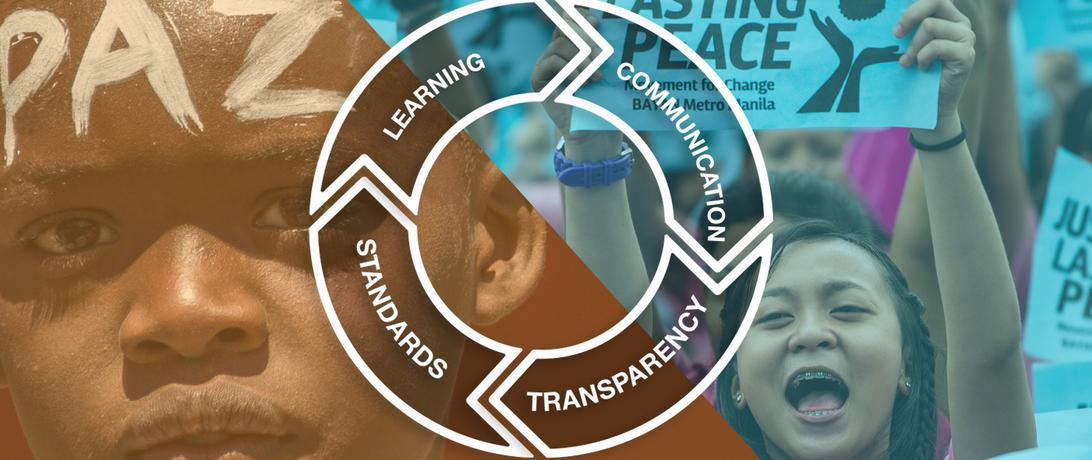
Findings from the recent global study and report from One Earth Future and the Alliance for Peacebuilding was at the center of a digital workshop event on May 14th that was hosted in partnership with the Better Evidence Project at George Mason University. We breakdown some of the main takeaways and conclusions from the event's discussions.
Findings from the recent global study and report from One Earth Future and the Alliance for Peacebuilding was at the center of a digital workshop event on May 14th that was hosted in partnership with the Better Evidence Project at George Mason University.
More than 400 people registered for a review of the key findings of the OEF/AfP report on the evidence base in peacebuilding, and an in-depth discussion of the implications and next steps for the field in promoting evidence-based practice.
See below for some of the main takeaways and conclusions of the discussion.
Breakout Group 1:
Women, Peace and Security and Evidence: How to Encourage Attention to the Evidence-based Role of Women in Peacebuilding
- Move beyond only gathering evidence and towards practice. The key is to get the broader public to engage with what the evidence tells us through unified messaging and integration into practice.
- Create a unified strategic communications effort across stakeholders, including integrating the voices of local women.
Breakout Group 2:
Developing a Foundation of Evidence-based Approaches: How to Collate and Communicate the Findings Where the Field Sees Evidence
- Need a standard set of methods. The field should create a standard set of methods that can be replicated across many different contexts.
- Focus on identifying underlying issues. Analysis should focus on unusual or outlying patterns within data to define the reasons for conflict. Categorizing why--or why not--an event has occurred is essential.
- Emphasis on improving translation and accessiblity of data through ADA compliance. Make sure all materials (evidence, data, texts, videos, etc.) are accessible in an online format.
- Using a system-based approach. Our work is a process, and not a prescription.
Breakout Group 3:
Promoting Evidence-based Approaches in the US Government: How to Better Engage Government Policy and Practice in the Discussion
- USG must increase its demand for evidence-based programming. Organizations should incorporate evidence at the strategy/design phase and donors must provide funding to strengthen implementers' MEL capacities.
- Policymakers have a role to play in supporting internal restructuring and reorientating of their institutions to support evidence-based practice.
- More access points are needed to enable peacebuilders outside of government to communicate evidence (of what works and what does not) and its value to USG actors.
Breakout Group 4:
Rigor, Not Methods: How to Discuss Rigor in Evidence Without Devolving to a Methods Debate
- Quality over rigor. We need to determine the preferred way to express the concept of 'rigor."
- Exploring options for standardized checklists or frameworks for assessment of qualitative evidence. In the interest of comparing research, checklists can strenthen assessment and build bridges across organizations.
- Maximally transparent documentation of research is essential. A key goal should be recording difficulties, challenges, and failures of methods to inform future efforts.
Breakout Group 5:
Next Steps for Peacemaking Evidence: How to Improve Evidence in Peacemaking
Learning from failure + reflective practice. It is hard to accept that a project may not have had the results we wanted, but if we acknowledge the failure, reflect on it, and share that learning, we improve our evidence base.
Collective impact. We need a way to look at evidence of collective impact in peacemaking. No single initiative is likely to have a great impact in isolation, but collectively many efforts build overall peace. Deep case studies would contribute to building evidence of the shared impact of collective efforts.
Article Details
Published
Topic
Program
Content Type
News